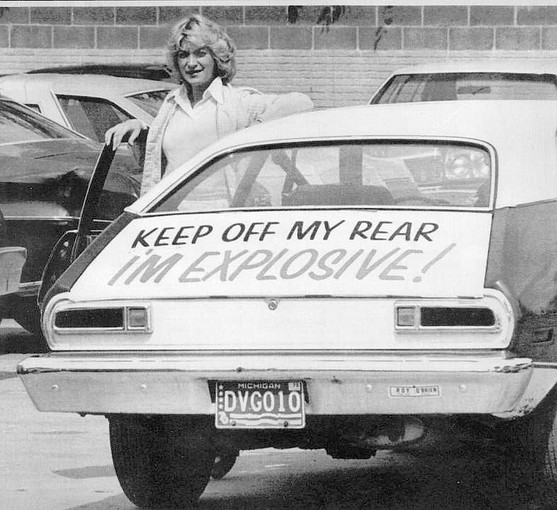My friend Dave had a beat up Vega. Similar to the much-maligned Pinto, the Vega got us around for our teenage mischief, along with the green Datsun B-210 missing a front panel.
The Pinto became famous for its tendency to blow up when struck from behind, and also by the manufacturer’s claim that the Pinto met or exceeded all government standards. For over 30 years, the meet-government-standards line has been known to engender no trust and instead  create distrust. But, watching the food industry is sometimes like watching the History Channel, a mix of fact, extraterrestrials and the perils of ignoring history.
create distrust. But, watching the food industry is sometimes like watching the History Channel, a mix of fact, extraterrestrials and the perils of ignoring history.
Federal regulators trying to track down the source of salmonella-tainted beef that’s sickened 19 people in seven states say Hannaford’s “inadequate” records and meat-grinding practices have hindered the investigation.
The federal Food Safety Inspection Service said in a statement yesterday that it still doesn’t know where ground beef infected with the bacteria Salmonella Typhimurium originated, despite a nearly three-week investigation. Authorities believe the infected meat was bought at Hannaford supermarkets.
Earlier this week, Hannaford spokesman Eric Blom declined to comment on the ongoing investigation, but insisted the company’s records passed muster.
“What I can tell you is all our record keeping practices either meet or exceed industry standards.”
Just like the Pinto.
